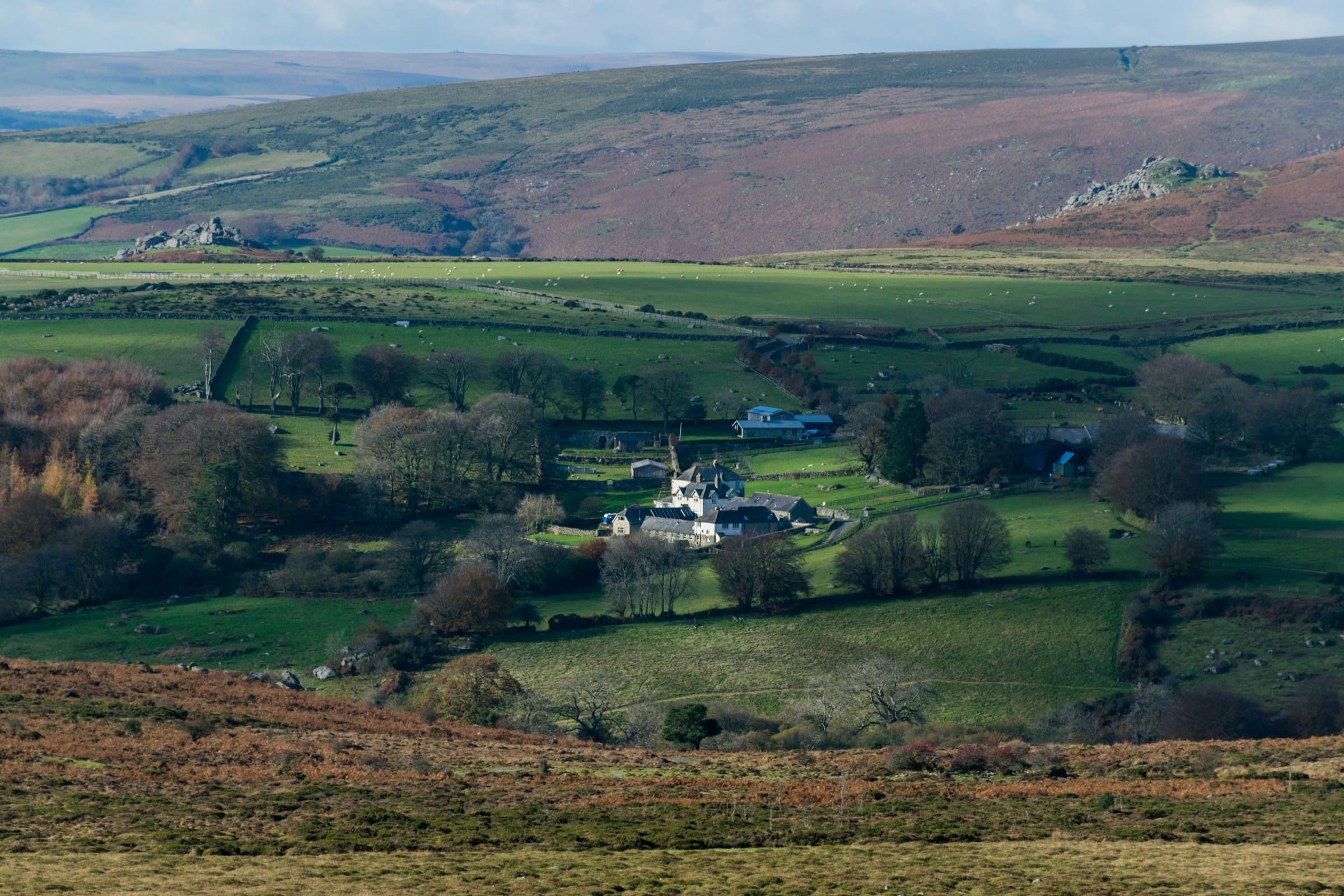How can visitors contribute to conservation efforts in Dartmoor National Park?

Deep in the green heart of England lies a gem of natural beauty - Dartmoor National Park. This remarkable testament to Mother Nature is revered by locals and tourists alike, who flock to immerse themselves in its stunning scenery, diverse wildlife, and rich history. But, with the rising influx of visitors, there is a growing need for conservation work to preserve this natural haven. So, how exactly can you, the visitor, contribute to these efforts? Read on to find out.
Understanding The Role of National Parks
Firstly, it's crucial to understand the role of national parks in conservation. As gatekeepers of nature, parks like Dartmoor have a two-fold role. They work to preserve their natural ecosystems and ensure that they can be enjoyed by future generations. But, they also serve as an educative platform, raising awareness about the importance of conservation among the public.
Sujet a lire : What are the best vegan options near Warwick Castle?
Dartmoor National Park, located in Devon, England, is a perfect example of a park fulfilling this double role. It houses an array of native species and habitats, from wild moorland and ancient woodland to babbling brooks and granite tors. It's a vital refuge for many rare and endangered species and therefore plays a key role in local conservation efforts.
Contributing to Conservation as a Visitor
As a visitor, your contributions to Dartmoor's conservation efforts can take many forms. Primarily, your role lies in following the guidelines set out by the park to ensure your visit is as eco-friendly and sustainable as possible.
A lire aussi : Which historical sites in Dover are linked to World War II?
For instance, visitors are encouraged to stick to marked paths to avoid damaging delicate habitats and disturbing wildlife. Waste should always be disposed of correctly - Dartmoor operates a 'leave no trace' policy to ensure that the park remains as clean and pristine as possible. These simple actions might not seem like much, but they can make a significant difference in the long run.
Volunteering and Participatory Tourism
One of the most direct ways of assisting with conservation work at Dartmoor National Park is by becoming a volunteer. The park regularly holds volunteering events, which locals and tourists can participate in. This not only allows you to contribute directly to the park's conservation efforts but also offers a unique and rewarding way to experience Dartmoor.
Participatory tourism is another exciting avenue. For example, visitors can adopt a Dartmoor pony - a vital part of the park's ecosystem. By doing so, they contribute to the care and preservation of these iconic creatures, reaffirming their commitment to Dartmoor's conservation mission.
Responsible Eco-tourism and Supporting Local Businesses
In addition to this, practicing responsible eco-tourism is another way visitors can help. This means being mindful of your impact on the environment and making eco-friendly choices during your visit. This could include choosing to cycle or walk instead of driving, staying in eco-friendly accommodation, or even packing a reusable water bottle.
Lastly, supporting the local economy is another crucial aspect of conservation. Many local businesses rely heavily on tourism and are deeply invested in preserving the natural beauty of Dartmoor. By opting to support these establishments, visitors can indirectly contribute to Dartmoor's conservation efforts.
Developing a Deep Respect for Nature and Wildlife
Above all, the most important contribution visitors can make is to cultivate a deep respect for nature and wildlife. Dartmoor National Park is not a zoo, and its wildlife should be appreciated from a safe distance. Respecting the park's rules and regulations, understanding the importance of conservation, and educating others about these issues can have a profound effect on the future of Dartmoor.
In conclusion, while the professionals may be doing the heavy lifting when it comes to conservation in Dartmoor National Park, there are countless ways visitors can contribute to these efforts. Every small action can make a big difference. So, the next time you visit Dartmoor, remember: you have the power to help preserve this fantastic corner of England for generations to come.
Encouraging Climate Change Consciousness and Green Tourism
Climate change is a global concern that plays a substantial role in conservation efforts. As a visitor to Dartmoor National Park, it's essential to maintain a climate-conscious mindset. Recognising the impact of climate change on Dartmoor's unique ecosystems is a significant step towards contributing to its preservation. This can be achieved through practicing green tourism, which involves making environmentally-friendly choices that reduce your carbon footprint during your visit.
For instance, you can choose non-motorised modes of transport like cycling, walking, or horse riding, which not only reduce carbon emissions but also offer you an intimate experience with Dartmoor's alluring landscapes. When visiting Dartmoor, consider using public transport or car-sharing schemes to get to the park. This not only reduces traffic and parking problems but also minimises the environmental impact.
Furthermore, Dartmoor's park authority has several initiatives aimed at mitigating climate change. You can actively contribute to these efforts by participating in tree planting activities, energy conservation, and waste reduction initiatives. Supporting these initiatives significantly aids in preserving Dartmoor's delicate ecosystems and biodiversity for future generations.
Lastly, consider staying in green accommodations that adhere to sustainable practices such as waste recycling, energy efficiency, and water conservation. This not only helps reduce your environmental impact but also supports businesses that prioritise sustainability, further contributing to the conservation of Dartmoor.
Exploring Dartmoor's History, Culture, and Local Businesses
Dartmoor is not just a natural haven; it's also a region rich in history and culture. Embracing this aspect of Dartmoor contributes to the park's conservation indirectly but meaningfully. Engaging with the local history and culture increases the value we place on Dartmoor, which fuels our desire to protect and preserve it.
Visit Dartmoor's historical sites like the ancient stone circles, medieval castles, and centuries-old villages. These sites provide a glimpse into Dartmoor's past, cultivating a deeper appreciation for the park. Similarly, understanding Dartmoor's culture, which has been shaped by its natural environment, promotes respect for the land and its people.
Supporting local Dartmoor businesses also plays a pivotal role in conservation. From farm shops selling local produce to artists and craftspeople whose work is inspired by the landscape, these businesses are intimately linked to the park and its conservation. They often rely on sustainable practices, respectful of the environment and local resources. By choosing to spend your money here, you support a local economy that values and protects its natural surroundings.
Moreover, Dartmoor's park authority often collaborates with local businesses in conservation efforts, offering volunteering opportunities. Participating in these opportunities not only allows you to contribute to the park's preservation but also provides a unique way to engage with the local community and learn about their connection to the land.
Conclusion: Making a Difference in Dartmoor National Park
Visiting a national park like Dartmoor is an incredible experience - but it also comes with a responsibility. In the face of environmental challenges like climate change and habitat loss, every visitor to Dartmoor has a role to play in its conservation.
From practising green tourism to supporting local businesses, learning about Dartmoor's history, culture, and volunteering, there are numerous ways to make a positive impact. Remember, it's not only about enjoying Dartmoor in the present, but also about preserving it for the future.
The next time you plan to visit Dartmoor, stay in touch with the park authority to learn about any new initiatives or guidelines. The Dartmoor gov website is an excellent resource for this. Also, consult the countryside code for best practices in rural areas.
By being a conscious and respectful visitor, you become part of the solution. Your actions, no matter how small, contribute to the ongoing conservation efforts, helping to preserve the marvel that is Dartmoor National Park for future generations. So, on your next visit, remember: you have the power to make a difference.
